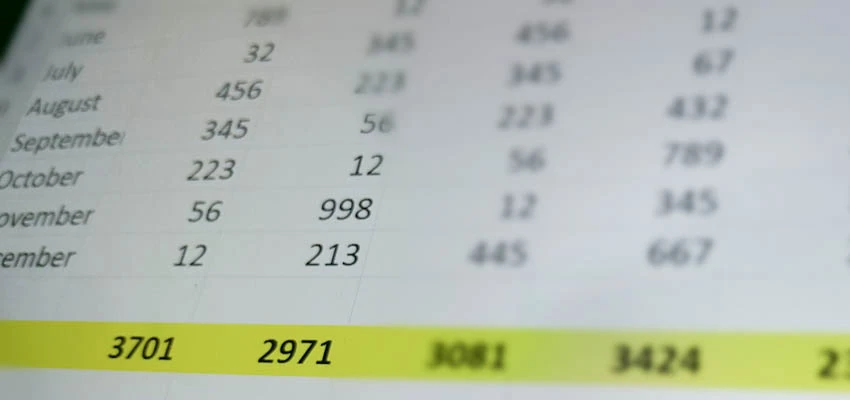School library budget

Research shows that investment in a well-resourced library has a direct and positive effect on student achievement, so it's important that input and decisions regarding your library's budget and expenditure are carefully planned and managed.
Responsibility for your budget
Responsibility for managing your library's budget depends on who is in your library team. Often this responsibility is delegated to:
the teacher librarian
the teacher with library responsibility, or
the library manager.
They are tasked with preparing and presenting the budget and managing budget expenditure.
It's important to include budget processes in your library’s guiding documents under policy and procedures.
Budgeting methods
The 2 approaches most commonly used by schools are ‘needs-based’ and ‘lump sum’ budget allocation.
Needs-based budgets
We recommend needs-based budgeting. This approach links your budget directly to the needs of your learners.
Most of your library budget will be spent on developing your collection. Include subscriptions and other costs in your budget, including display materials, processing supplies, printing and copying.
Once you've assessed your collection and gathered information about your school community you'll be able to prioritise and collate your needs into a collection requirements plan. You'll then include information from the plan in your budget proposal, so it clearly outlines the actual funding your library needs.
This evidence-based approach clearly links library resourcing to support for student learning. This strategic link between library resourcing, and student learning and achievement gives added strength to the library budget proposal in your school.
Lump sum allocation
Some schools still use this approach to budgeting, where the funding for the coming year is based on previous years’ budget allocations or a set amount per student. This approach does not necessarily:
recognise the increasing price of library resources
establish clear links between the development of your collection and the curriculum or your students' reading interests
provide sufficient accountability
allow your library team to shape the library services to your students' learning needs.
Preparing your budget
Preparing a library budget is part of the school’s annual financial management cycle. Your proposal for the library should include estimated costs for the following items:
books, including eBooks and audiobooks
subscription costs, including print magazines and eBooks — in some schools subscriptions to online information such as SCIS, eTV and ClickView may be included in ICT or network administration budgets
library software support, including annual licence fees, upgrade requirements, support charges*
consumables, including processing and repair materials such as covers, barcodes, security strips, spine labels, as well as materials for student librarian certificates, displays and incidentals such as student librarian rewards
photocopying charges including paper, toner cartridges and service charges
professional reading subscriptions such as review journals and membership of professional associations, e.g. SLANZA and Read NZ To Pou Muramura’s Writers in Schools
minor capital items such as cushions, signs, a laminator or barcode scanner.
The following items are normally paid for out of other school budgets:
ICT hardware and costs associated with networking
internet costs and telecommunications charges
furniture, shelving and other major capital items
library staff salaries
professional development for the library team.
All school budgets are GST exclusive.
Budget proposal template for school libraries (docx, 107KB)
Approved budget
Decisions on your library's budget are based on your budget proposal and available funds. If you're allocated less funding than requested in your proposal, you'll have to re-prioritise your original plan and tell the relevant teaching departments.
You can note any problems — such as having insufficient resources for a particular topic — in your collection requirements plan so it can be considered in the future.
Other sources of funding
It's your Board of Trustees’ responsibility to provide sufficient funding for your school’s programmes. If you need extra funding it's worth investigating grants, PTA donations, school fundraising, book fairs and commercial sponsorship. Other sources of funding should be additional to, not instead of, adequate library funding.
Monitoring your expenditure
It's essential that you know how much money you've spent and how much you still have to spend. Funds allocated to the library but not spent within the budget time frame may be unavailable once returned to the school’s general accounts. This may make it hard to justify requests for funding in following years.
You may decide to spread spending across each term to ensure there is a flow of new materials throughout the year. Talk to teachers to find out if you’ll need to schedule spending at different times. For example, you might plan to have materials on hand to coincide with topic or curriculum needs.
Keeping records
You may find it useful to use a spreadsheet for recording expenditure against your budget. Maintain a separate sheet for all budget categories or accounts, such as subscriptions and printing — not just items added to your collection.
How to set up a simple Google Docs spreadsheet to track your library budget (YouTube Video 5:16)
Your integrated library System (ILS) may include an acquisitions module for managing items to be added to your catalogue. If so, refer to the ILS documentation from your software vendor for further information.
Reporting
Liaise with your school administration personnel to provide the information they need. They have overall responsibility for your school's financial management.
The Ministry of Education provides information about financial management of library resources.
Financial Information for Schools Handbook (FISH) — see 'Library and teaching resources'.